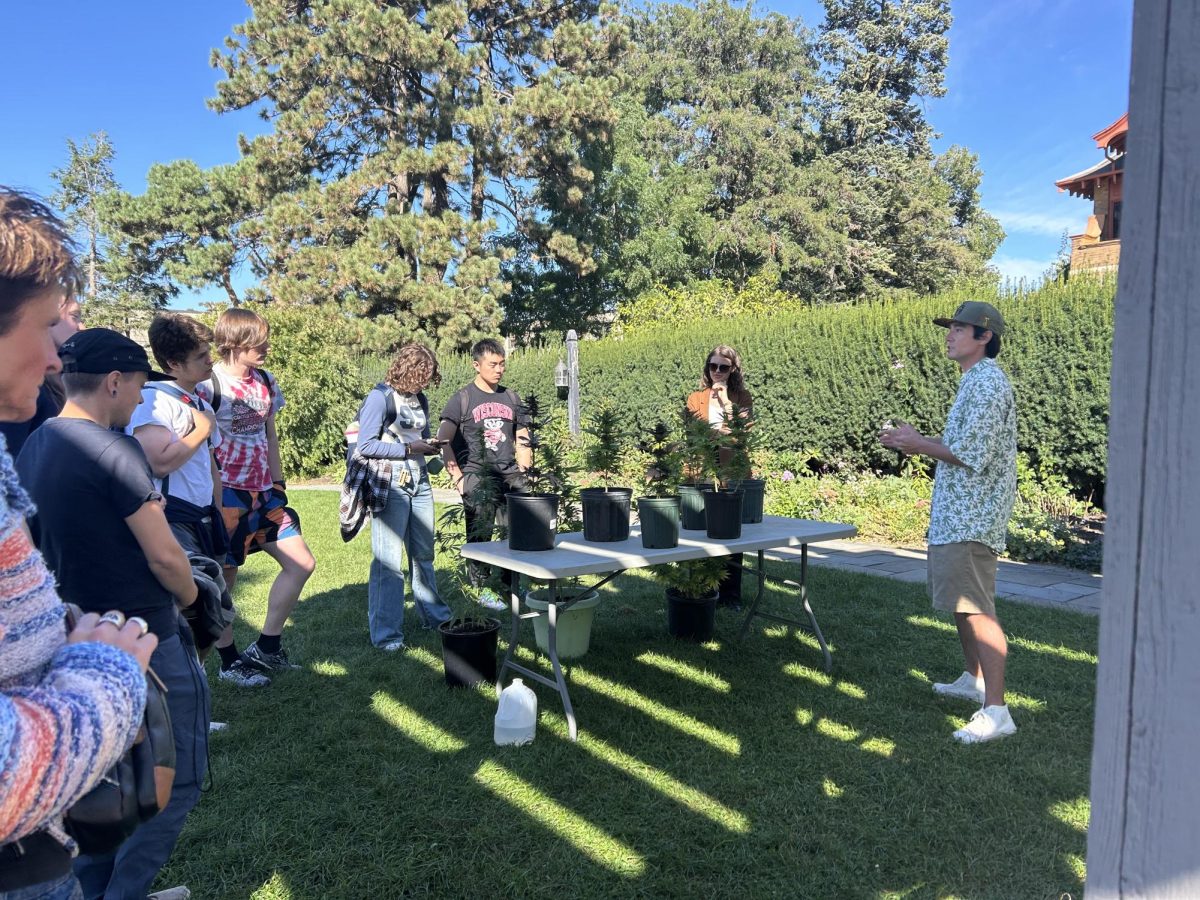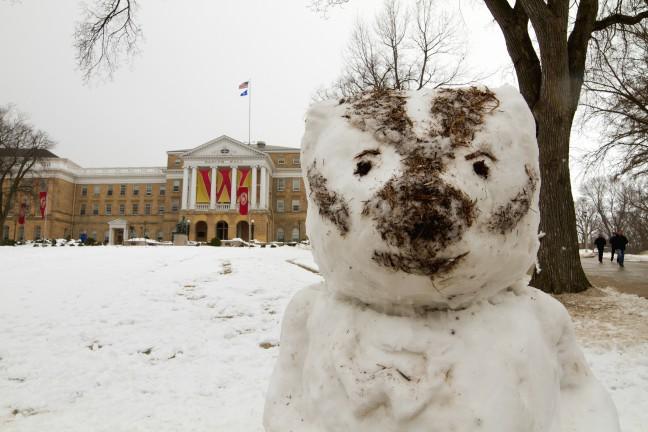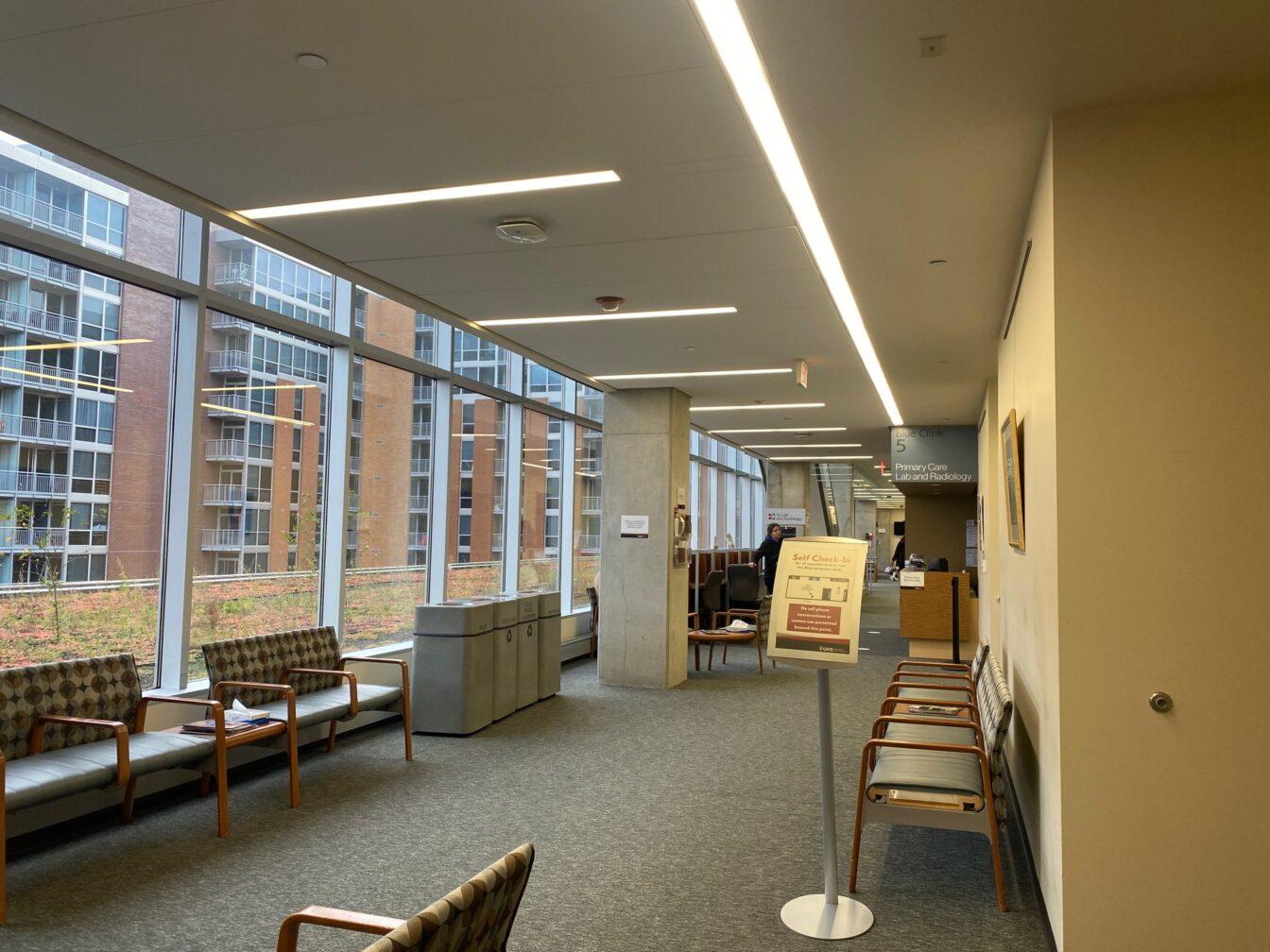The UW School of Pharmacy and Psychedelic Past, Present and Futures workshop hosted the third annual Plants as Psychoactives and Medicines tour. Held at Allen Centennial Garden, home of hundreds of different species of plants, the tour provided students and faculty with the opportunity to learn about different plants and their relationships to medicine and health.
Organizer of the Psychedelic Past, Present and Futures Workshop, Liz Birkhauser, spoke during the tour.
“The purpose of this event is to get people in the garden to start thinking about their relationships they have with plants, waning medicines, [and] with pharmaceuticals in some different ways,” Birkhauser said.
10 different stations were sprinkled throughout the garden, discussing plants ranging from wild rice to salvia and cannabis. Additionally, graduate students and faculty from numerous different research labs came together to talk about the health connection of their respective plants.
“Having all of the different presenters brings really different perspectives of what medicine looks like, what health looks like and how all of these are interconnected,” Birkhauser said.
The wild rice station as it is extremely interesting to see that plant in the same group as more psychoactive ones, Birkhauser said.
“People may say, ‘how is that medicinal?'” Birkhauser said. “But food and the well being of our surroundings is also important for the health of us.”
Every plant has a connection to medicine and nature, it’s just a matter of being able to understand it, Birkhauser said.
Along with wild rice, the cannabis station also had significant engagement from the viewers. Graduate research assistant at the Ellison Lab, Sean Kim, answered questions about popularity, color and medicinal impacts of cannabis.
Kim emphasized the significance of research on cannabis. He discussed how Ellison lab researches cultivation and preservation of hemp plants, and also explained how they use genetics to learn more about the plant. Along with scientific properties, Kim also mentioned how important the plant is from a social aspect.
“It’s important because people care,” Kim said.
He explained how there is heavy interest in body responses to cannabis from the general public, and also spoke on the history of cannabis and barriers to certain goals. Spreading awareness can help fix some of these issues, Kim said.








